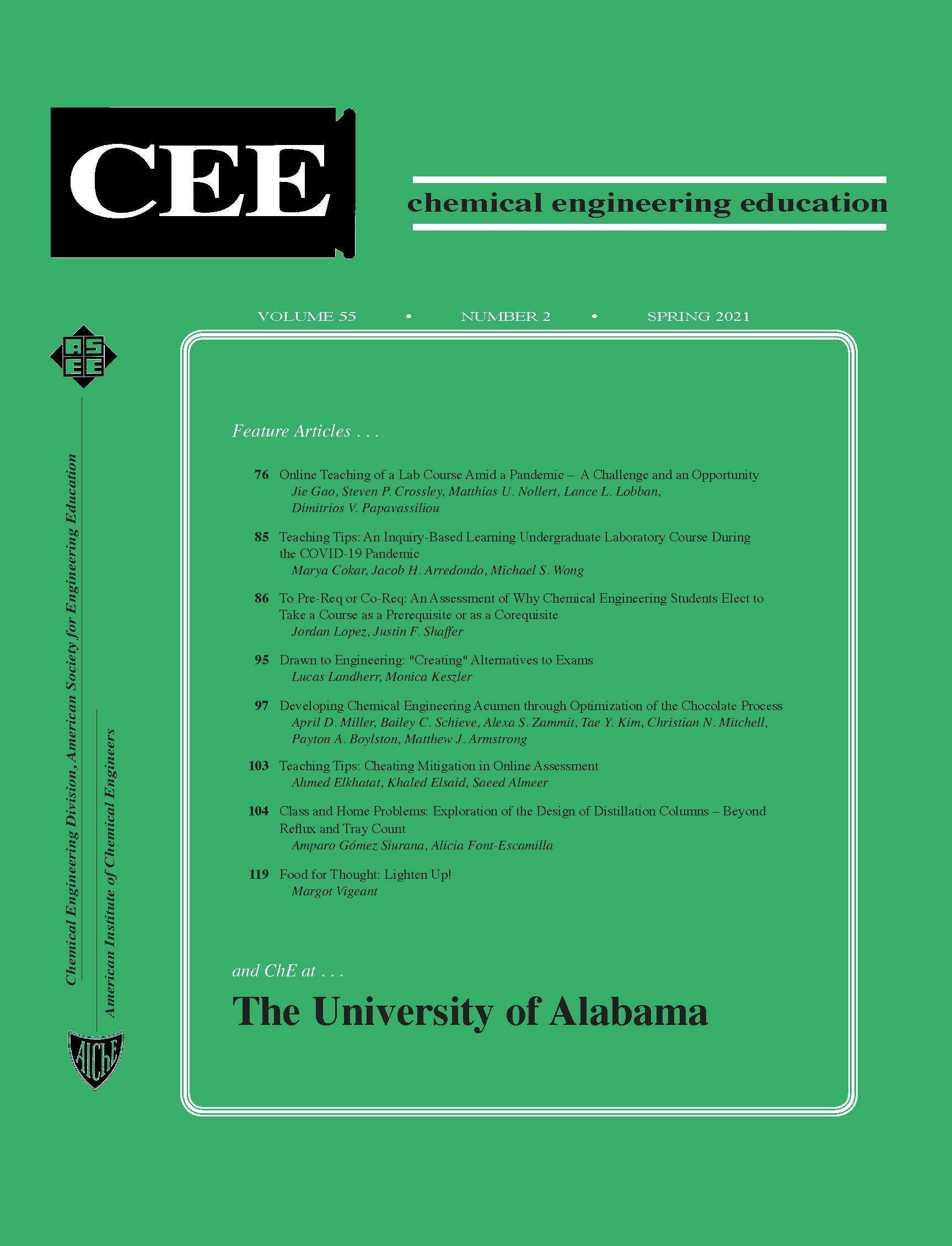Online Teaching of a Lab Course Amid a Pandemic — A Challenge and an Opportunity
DOI:
https://doi.org/10.18260/2-1-370.660-124795Abstract
This paper reports an innovative, hybrid teaching model for a junior level lab course. This model leverages in-person lab operation by adding a student-led online learning mode. Both course outcomes and student outcomes were evaluated. Student feedback was collected, and its analysis showed both positive and negative impacts in this hybrid model. This work is not only valuable for developing online lab courses but also in terms of long-term development of distance learning.
Downloads
Veröffentlicht
2021-02-05
Ausgabe
Rubrik
Manuscripts


